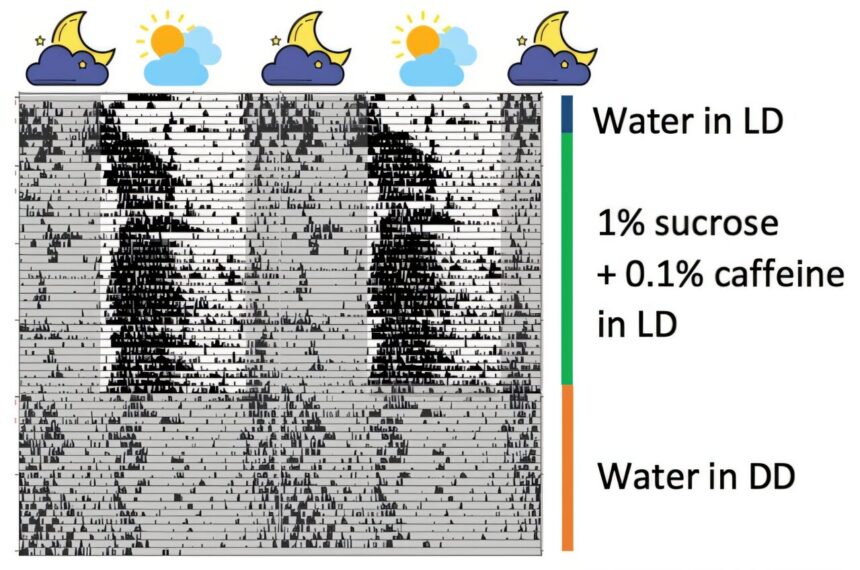Coffee is a staple beverage for many people, whether it’s to kickstart the day or power through a late-night study session. However, a recent study has shed light on how adding sugar or artificial sweeteners to coffee can disrupt the body clocks of mice more than coffee alone. This discovery could have significant implications for human health if the same effects are observed in people.
The research, published in the journal “npj Science of Food,” found that combining caffeine with sweeteners caused some mice to experience a reversal of their day and night cycles. This unexpected finding prompted further investigation into the effects of sweetened caffeine on the body’s internal clock.
Lead researcher Yu Tahara, from Hiroshima University, explained that the team initially observed changes in the behavior of male mice consuming sweetened caffeine water. The mice were given a mixture containing 0.1% caffeine, half the concentration of espresso, and either 1% sucrose or 0.1% saccharine. Surprisingly, the addition of sweeteners did not increase the amount of caffeine consumed by the mice, indicating that the effects were due to the combination of caffeine and sweetener.
Mice that drank the caffeine-sweetener mix exhibited significantly altered activity rhythms, with some transitioning from a nocturnal to a daytime-based circadian rhythm. These effects persisted even when the mice were kept in constant darkness, suggesting that the caffeine-sweetener combination was influencing the body clock independently of the central regulator in the brain.
The researchers hypothesize that the dual impact of caffeine and sweeteners on the brain’s reward system, particularly the release of dopamine, may be responsible for the prolonged activity rhythms observed in the mice. Further studies will explore the potential link between dopamine and the effects of sweetened caffeine, with a focus on determining if similar results are seen in humans.
While caffeine consumption is associated with improved alertness and performance, excessive intake can disrupt sleep patterns and have negative health consequences. Adding sweeteners to caffeine may exacerbate these effects, according to the researchers. This new insight highlights the importance of moderating caffeine consumption, especially in the evening, to avoid potential disruptions to the body’s internal clock.
On a positive note, the researchers also plan to investigate the effects of consuming caffeine and sweeteners in the morning. Tahara suggests that pairing your morning coffee with something sweet could enhance alertness and energy levels. However, further research is needed to fully understand the implications of sweetened caffeine consumption on human health.
In conclusion, the study’s findings offer valuable insights into how sweeteners can amplify the effects of caffeine on the body’s internal clock. By understanding the potential impact of combining caffeine with sweeteners, individuals can make informed choices about their coffee consumption to optimize their health and well-being.








